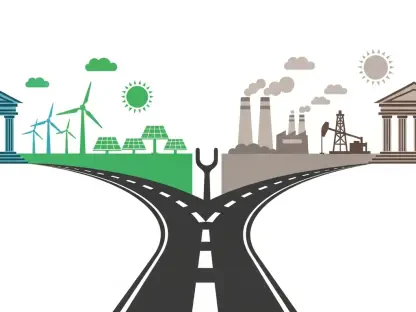The potential implications of Donald Trump’s presidency on Canada’s public service introduce unprecedented policy shifts and challenges. Trump’s trade policies and isolationist approach have sparked a new wave of national unity in Canada and prompted an urgent reassessment of the country’s relationship with the United States. As Canadian leaders grapple with these disruptions, questions arise regarding the public service’s ability to handle the pressures of recalibrating without undergoing significant reforms. The discussion becomes rich with expert opinions, historical comparisons, and speculative future outcomes.
The Chaos Unleashed by Trump’s Presidency
Trump’s presidency has unleashed chaos, particularly in relation to Canada’s trade and political landscape. His aggressive policy shifts and trade wars have compressed Canadian-US relations, leading to a renewed sense of unity within Canada. The isolationist and combative stance of the US administration has prompted Canadian business and political leaders to consider how they will adjust to an increasingly unpredictable neighbor. This ongoing situation presents an opportunity for Canada to become more autonomous and resilient in its governance and economic strategies.
One recurring theme is the similarity between current challenges and those faced in 1995 under Jean Chrétien’s administration, which underwent a significant overhaul triggered by a severe fiscal crisis. The article draws a parallel between the sweeping job cuts and restructuring of the Canadian public service during the 1995 crisis and the potential for similarly drastic measures resulting from Trump’s presidency. However, it suggests that any contemporary measures must be tailored to today’s specific needs and challenges.
Expert Opinions on Public Sector Adaptation
Experts and former public servants offer insights on the impact of Trump’s policies and reductionist approach to the public sector on Canada. They largely agree that while Canada is unlikely to adopt the extreme tactics seen in the US, some adaptation is necessary. Donald Savoie, a noted public administration academic, posits that ignoring these dynamics is not an option for Canada, predicting a shift towards a more streamlined public sector. Similarly, Alasdair Roberts, a professor of public policy at the University of Massachusetts Amherst, suggests that the developments in the US could reverberate in Canada, particularly if the Conservative Party comes to power.
Another critical point raised is the belief that Trump’s presidency acts as a catalyst for addressing Canadian economic and structural issues, such as productivity inefficiencies and outdated infrastructure. Michael Wernick, the former Clerk of the Privy Council, argues that while public discourse has emphasized reducing the size of the public service, what is truly needed is a strategic approach to reforming and modernizing it. He contends that the current public service framework, designed to tackle challenges from the 2000s, is not suited for the complexities of the 2020s.
The Pandemic’s Lessons
The lessons learned during the pandemic period provide valuable insights into the looming crisis precipitated by Trump’s policies. The article acknowledges that public service must evolve to become more resilient, agile, and efficient amidst increasing global uncertainties. Wernick voices concerns over the public service’s struggles to execute and deliver required services, citing security lapses in agencies such as the RCMP, Coast Guard, and border services, as well as slow and cumbersome government procurement processes as evidence of systemic issues.
Roberts highlights that Canada has been slow to adapt and often reactive rather than proactive. He identifies short-term political agendas, poor federal-provincial dialogue, and a fraying public sphere as major obstacles. Additionally, the state of the public service, bogged down by rules and oversight accumulated over decades, is another significant barrier. To be truly adaptable, Canada needs a public service capable of rapidly implementing new ideas, Roberts asserts.
Potential Solutions and Recommendations
While the Canadian government does not need to adopt the drastic and, according to critics, illegal measures taken by Trump, it should consider a significant “jolt” akin to a strategic review. The analogy drawn is with the sweeping reforms Elon Musk is promoting in the US, focusing on AI-driven efficiencies and reducing bureaucracy. Despite skepticism due to the human costs involved, the article suggests that AI could revolutionize the public service, streamlining processes and achieving substantial savings.
Ian Lee from Carleton University’s Sprott School of Business argues that AI could restructure the public service, enabling job reorganization, streamlined work processes, and substantial savings. However, such transformation would require massive shifts in government focus and expenditure, particularly to meet defense and border security spending, which may influence budget allocations toward reforming public services.
Calls for a New Commission
Former CIO of Canada, Benay, along with other senior bureaucrats, suggests proactive measures for Canada’s future public service. He proposes a “super-charged Glasco Commission” or a fast-moving blue-ribbon panel made up of public- and private-sector experts, including disruptors. This group’s goal would be to draft a comprehensive plan to overhaul the public service, making it ready for future challenges and aligning it with modern needs.
Interestingly, despite the urgency and discussion around these necessary reforms, neither the Liberal leadership contenders nor Conservative Leader Pierre Poilievre have addressed the need for a strategic review. Poilievre’s approach emphasizes attrition, where the reduction in public service happens through non-replacement of retirees and those who leave. However, Michael Wernick critiques this tactic as insufficient for achieving significant fiscal improvements.
Final Analysis and Insights
The potential consequences of Donald Trump’s presidency for Canada’s public service introduce unprecedented policy shifts and challenges. Trump’s trade policies, along with his isolationist stance, have ignited a new wave of national unity in Canada. This has prompted an urgent reassessment of the country’s relationship with the United States. As Canadian leaders navigate these disruptions, significant concerns emerge about the public service’s capacity to handle the pressures of recalibrating their strategies without undergoing considerable reforms. The conversation around this issue is becoming increasingly rich, filled with expert opinions that utilize historical comparisons and explore speculative future outcomes. Canadians are now faced with the daunting task of adapting to an unpredictable political landscape while maintaining stability and public trust. This scenario presents a complex interplay of economic, political, and social factors that require thoughtful deliberation and strategic foresight from the nation’s leaders and public servants.









